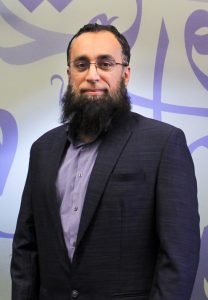Recent Posts
- CSE Students Achieve Top Honors at Huawei ICT Competition 2025–2026 Innovation Track
- Strengthening Industry Collaboration: CSE Hosts IAB Meeting for CS and CE Programs
- CSE Students Secure First Place at Snoonu Hackathon 2026
- CSE Faculties Receive Grants on Institutional Collaboration between Qatar University & Khalifa University
- Computer Engineering Practicum Demo Day & Contest (4th Edition)
Archives
- February 2026
- January 2026
- December 2025
- November 2025
- September 2025
- August 2025
- May 2025
- February 2025
- January 2025
- December 2024
- November 2024
- September 2024
- June 2024
- May 2024
- April 2024
- March 2024
- February 2024
- January 2024
- December 2023
- November 2023
- October 2023
- September 2023
- June 2023
- May 2023
- April 2023
- March 2023
- February 2023
- January 2023
- December 2022
- November 2022
- October 2022
- September 2022
- August 2022
- May 2022
- April 2022
- March 2022
- February 2022
- January 2022
- December 2021
- November 2021
- October 2021
- September 2021
- August 2021
- July 2021
- May 2021
- April 2021
- March 2021
- February 2021
- January 2021
- December 2020
- November 2020
- October 2020
- September 2020
- August 2020
Categories
CSE Faculty Secures QRDI Grant Award for AI-Integrated Islamically-Grounded Psychotherapy
September 28, 2025 / Leave a comment
Prof. Junaid Qadir, a faculty member of our CSE department, and his interdisciplinary team have secured a $300,000 research grant over 24 months from the Qatar Research, Development, and Innovation Council (QRDI). Awarded under the “Advancing Neuro and Mental Health Research” (ANMR) Call, this project highlights the team’s pioneering leadership at the intersection of technology, faith, and mental health.

The funded initiative, titled “Integrating Generative AI with Traditional Islamically Integrated Psychotherapy (TIIP) for Religious OCD”, brings together experts from across institutions and disciplines. The project is led by Prof. Qadir (Qatar University) alongside Dr. Hooman Keshavarzi (Hamad Bin Khalifa University), Dr. Alaa Ali Abd-Alrazaq (Weill Cornell Medicine—Qatar), and Dr. Syed Ibrahim Ghaznavi (Information Technology University, Pakistan).
The research addresses scrupulosity, a form of religious obsessive-compulsive disorder (OCD). This condition manifests in intrusive doubts, compulsive rituals such as repeated purification or obsessive prayer, and deep feelings of guilt over perceived sins. To respond to this challenge, the project will design a mobile and web platform anchored by a Generative AI–powered chatbot. The chatbot, carefully fine-tuned under the supervision of TIIP experts, will deliver timely, Islamically-authentic therapeutic support while maintaining strict privacy and ethical safeguards.
By blending TIIP, behavioral science, and responsible Generative AI, the project introduces a culturally grounded and scalable model for addressing religious OCD in Muslim-majority societies. Crucially, the approach keeps human connection at its core while using AI to enhance personalization, engagement, and accessibility for those in need.
This project not only sets a precedent for integrating cutting-edge AI with culturally authentic psychotherapy, but also signals a new frontier in mental health care that is both innovative and deeply rooted in tradition.
Congratulations to Prof. Junaid and his team!
